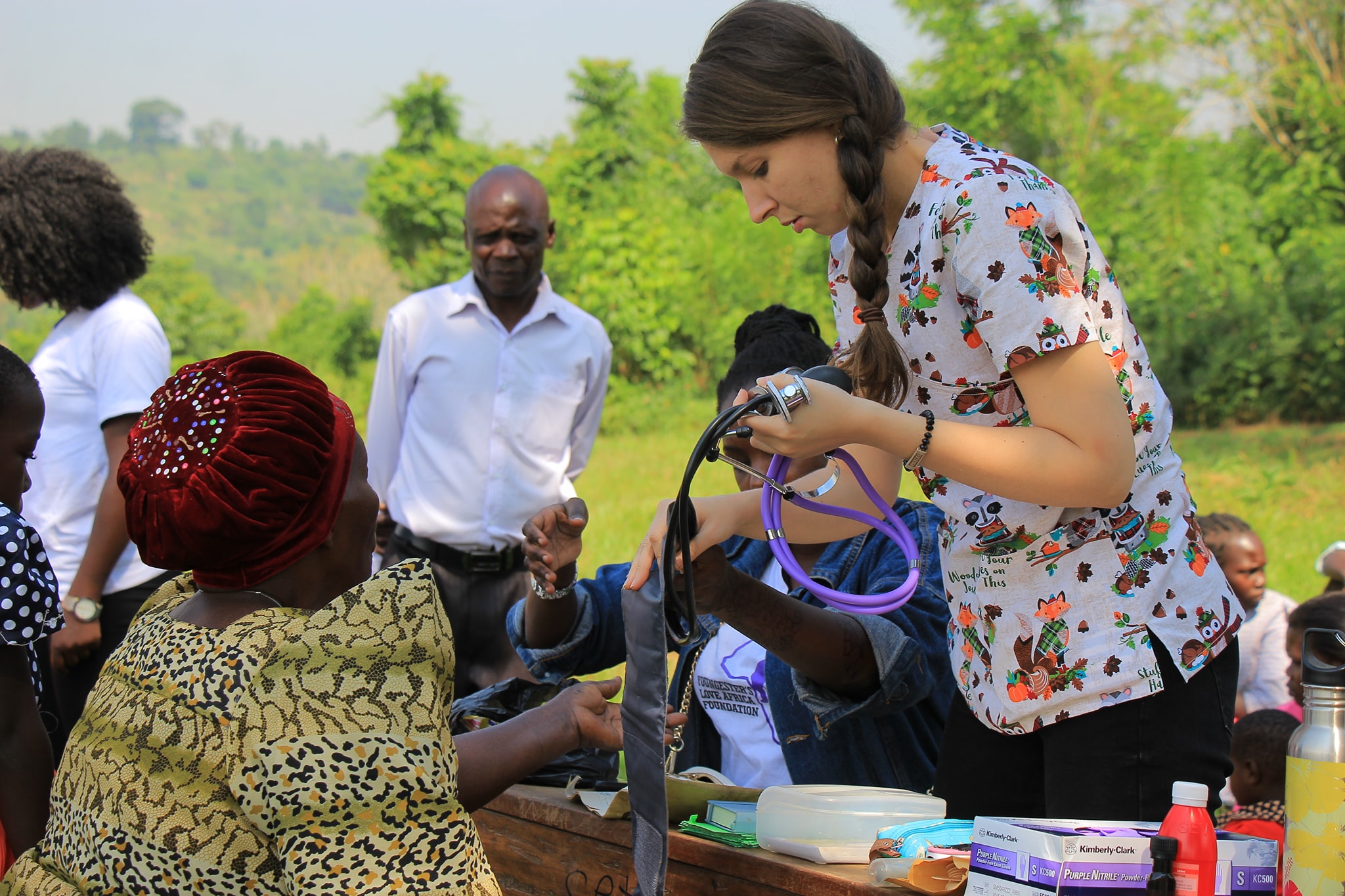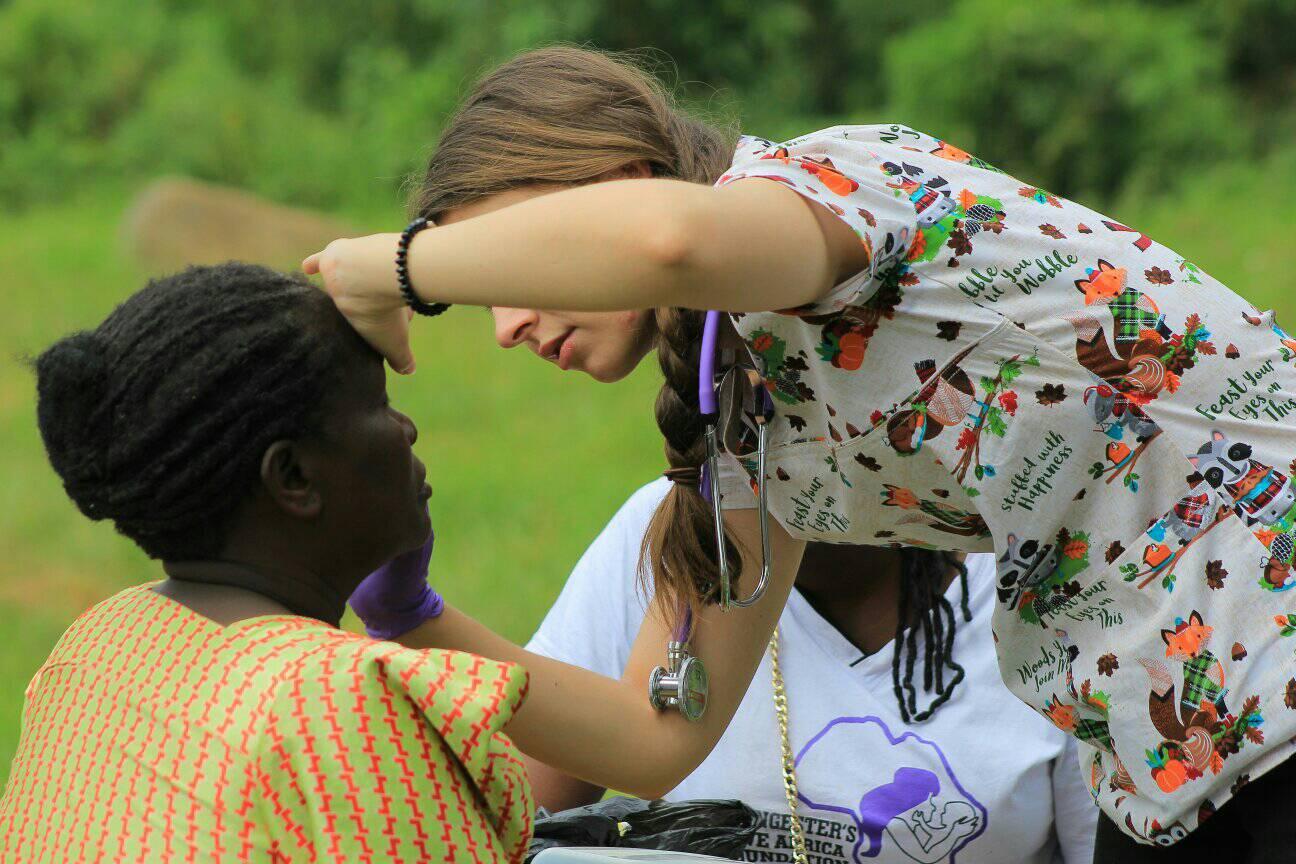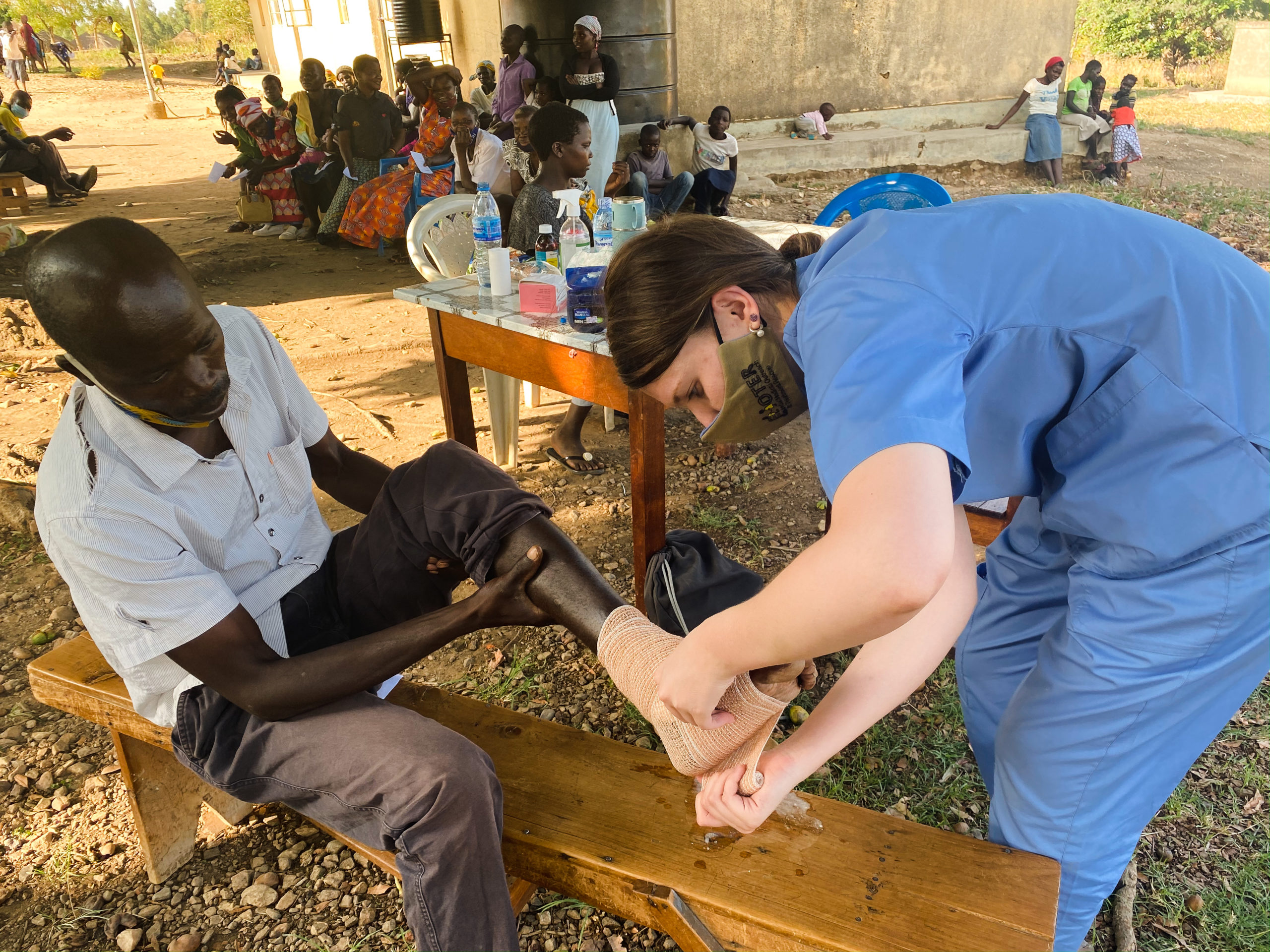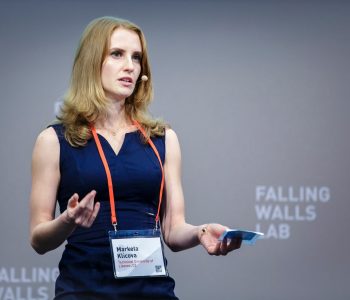 Czech Republic
Czech Republic
Lenka Karahutová, Doctor, Founder & CEO EMOTER
Lenka, you are the founder and a CEO of EMOTER (Essential Medical Outreach & Treatment Rescue): Can you tell us about your journey with this amazing initiative?
When I was in the fifth year of my studies at The Third Faculty of Medicine in Prague I wanted to do an internship in a developing country as I felt the experience could teach me a lot. Initially I did not know which country but a student from our school had gone to Uganda and had a very positive experience: She helped me set up an internship there for the summer.

Copyright: Lenka Karahutova
I was working in a hospital in the capital city (Kampala) and one day while visiting a nearby orphanage with a colleague, we were asked to see a local person and provide basic medical treatment. I had already heard of medical outreach where groups of healthcare workers pack some medical supplies and visit remote rural areas to treat people in their community. I thought that it was something positive I could do; as soon as I mentioned the idea to friends and family back home, they started sending me money before I had even asked.
I bought some medical supplies, put together a team of colleagues and organised my first outreach. It was a great experience and even though we were all exhausted after a long day of treating patients, we felt motivated and committed. I knew that to continue, we needed an official organisation behind us. When I returned to Uganda in my sixth year of medical school, I founded EMOTER.
As I also wanted to provide other medical students with the opportunity to experience this for themselves, I set up a Czech branch with the help of fellow medical students Tamara Fořtová and Petr Janota.
Have you always known that you wanted to become a doctor?
Yes, I did. I always wanted to do something in the area of biology or chemistry and I’ve pictured myself in a doctor’s white coat ever since I was a child.
Generally, women are disadvantaged because employers hesitate to hire them in case they get pregnant and go on maternity leave
Lenka Karahútová
Can you tell us bit more about your background?
I grew up in Slovakia and then moved to the Czech Republic to study medicine. Now I work in the Obstetrics and Gynaecology department at a hospital in southern Bohemia.
And when I am not at the hospital, I run EMOTER: this means organising and taking part in medical outreaches as well as coordinating educational activities and fundraising. If I have a moment of spare time I like to cook, go for a run, go slacklining or play my ukulele.
What was the biggest challenge when becoming a doctor?
I am not going to lie: It is not the easiest career path! Especially at the beginning, it is difficult to find a balance between studying and having a social life so that you don’t go mad.
You also need to keep in mind that studying isn’t everything and failing an exam isn’t the end of the world. Making a mistake early in school is better than making it later, as a doctor, when it could endanger someone’s life.
And after you finish medical school you need to remember that it is normal not to know everything; you will keep on learning your whole life. It is nothing to be ashamed of to ask for advice or look something up in a book. Doctors are only humans and the important thing is that they always do their best.

Copyright: Lenka Karahutova
Let’s talk a bit more about EMOTER. It’s a fantastic initiative. What is your ultimate goal?
There are many different organisations helping people in Uganda and other developing countries. Most however are concentrated in the urban areas where the situation is already improving. We are focusing our efforts on remote rural areas of the Nebbi District where there are few medical facilities and people often die needlessly of treatable diseases like malaria simply because they cannot get to a doctor or afford the necessary medicine. Another thing is that most organisations do not cooperate closely enough with local communities which is something we are doing as I believe it is important to make what we do sustainable in the long-term. Our ultimate goal is to educate the local people and equip them with the necessary tools so that eventually they will not need any outside help. That is why, apart from medical outreach, we focus on health education and prevention. We are also planning on building our own hospital with a school for nurses, midwives and other medical workers.
They certainly can. If someone wants to join us during our outreaches, we take doctors as well as medical students (from the fifth or sixth year of medical school). In the future we would like to take nurses and other medical workers, too.
We are also looking for volunteers to join our team in the Czech Republic fundraising and running the organisation. Our Czech team has currently more than ten people who volunteer their time to us for free.
Do you see more women going to study medicine and becoming successful doctors?
According to statistics, there are three times as many female medical students as their male counterparts. Unfortunately, it can still be difficult for women to get to senior positions, especially in departments performing surgery where physical strength might be needed.
Generally, women are disadvantaged because employers hesitate to hire them in case they get pregnant and go on maternity leave. In the West the situation is getting better and I think it is slowly improving in the Visegrad Countries as well.
What is your motivation to keep on working and improving yourself?
I don’t know if I can name a specific motivating factor although I think it is natural to want to improve yourself. At a certain point I realised the importance of thinking globally: That someone from the other side of the world can influence my life and I can influence theirs. That is why I believe helping each other is so necessary. I want to live in a world where we all realise that “no man is an island”.
Who has been the biggest supporter on your journey so far?
There is not just one person. I have many people supporting me, especially my friends and family. But I feel like everyone around gives me some form of support and I try to avoid people who do not share my values.
What book would you recommend to our readers as a must read?
I am fascinated by personal stories from WW2 concentration camps. Books like Anne Frank’s Diary or Mengele’s Girl show that even when the situation is completely desperate there is still hope.
If there is one piece of advice you could give to our readers what would it be?
Try to live everyday so that when you are falling asleep at night you are at least a little bit wiser than when you got up that morning.
 Copyright: Lenka Karahutova
Copyright: Lenka Karahutova









